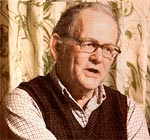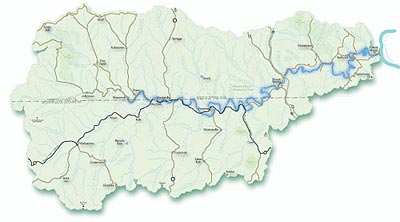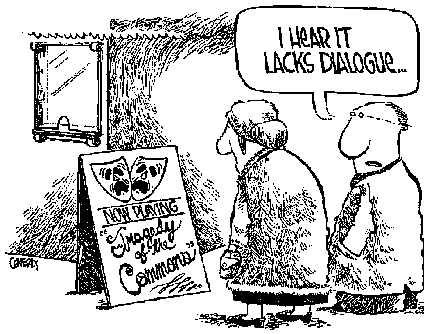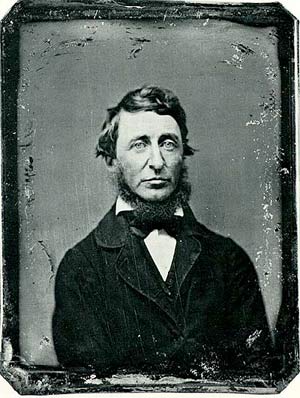Biblio
See: Criticism: Tragedy of the commons | Wikipedia
More significantly, criticism has been fueled by the "application" of Hardin's ideas to current policy issues. In particular, some authorities have read Hardin's work as specifically advocating the privatization of commonly owned resources.
Consequently, resources that have traditionally been managed communally by local organizations have been enclosed or privatized. Ostensibly, this serves to "protect" such resources, but it ignores the pre-existing management, often appropriating resources and alienating indigenous (and frequently poor) populations. In effect, private or state use may result in worse outcomes than the previous management of commons.
Ostrom, E., J. Burger, C. B Field, R. B Norgaard, and D. Policansky. 1999. Revisiting the commons: local lessons, global challenges. Science 284, no. 5412: 278.
Victor L. Ponce. Hardin's "Tragedy of the Commons" Revisited or We Are All In the Same Boat.
Another example of a typical commons is groundwater. Nobody really owns the groundwater; it is technically up for grabs. However, individual pumping of too much groundwater can result in the depletion of the resource, to say nothing of other related effects or losses, such as land subsidence and salt-water intrusion...Eventually, depletion by a few means depletion for all.
See: USGS. Land Subsidence
Victor Ponce is a Professor of Civil, Construction and Environmental Engineering at San Diego State University.
See: Marcellus-Shale.us. December 2, 2009. "Dunkard Creek Fish Kill."
The Tragedy of the Commons
Adding together the component partial utilities, the rational herdsman concludes that the only sensible course for him to pursue is to add another animal to his herd. And another... But this is the conclusion reached by each and every rational herdsman sharing a commons.
Therein is the tragedy. Each man is locked into a system that compels him to increase his herd without limit -- in a world that is limited. Ruin is the destination toward which all men rush, each pursuing his own best interest in a society that believes in the freedom of the commons. Freedom in a commons brings ruin to all.
I would like to focus your attention not on the subject of the article (national security in a nuclear world) but on the kind of conclusion they reached, namely that there is no technical solution to the problem.
An implicit and almost universal assumption of discussions published in professional and semipopular scientific journals is that the problem under discussion has a technical solution. A technical solution may be defined as one that requires a change only in the techniques of the natural sciences, demanding little or nothing in the way of change in human values or ideas of morality...
...It is our considered professional judgment that this dilemma has no technical solution.
See: J. B. Wiesner and H. F. York. "National Security and the Nuclear-Test Ban." Sci. Amer. 211 (No. 4), 27 (1964).
See: The Tragedy of the Commons. Food and Agriculture Organization of the United Nations (FAO) in:
Jean-Marie Baland and Jean-Phillipe Plateau. (1996). "Halting degradation of natural resources". Food and Agriculture Organization of the United Nations. Rome, Italy.
Is there a Role for Rural Communities?
The present work is concerned with the topical issue of natural resource management. It does not deal, however, with broad-spectrum environmental concerns such as protection of wilderness areas (for example, the south pole), air or water pollution, etc., but focuses on local ecosystems. What distinguishes local-level resources from larger ecosystems is that:
(1) they are susceptible of appropriation by relatively small units (including individuals) and
(2) they can lead to rivalry in consumption in so far as yields of these resources are clearly perceived as subtractable. This book thus addresses the question as to how these local or village-level natural resources (as contrasted with global commons) can be most efficiently and equitably managed. In other words, can we find guidelines or sound theoretical principles for an optimal long-term exploitation of local resources (forests, irrigation water, pastures, lakes and rivers, sea areas, etc.)?
Disturbing evidence highlighting rapid processes of resource depletion, particularly so in developing countries, has stimulated a lot of theoretical and empirical works during the last decades. Moreover, relevant theoretical tools (such as game theory) have been developed independently of environmental concerns which have potential applications to this field.
A Project in Cooperation with the Thoreau Society.
The Thoreau Reader - Annotated works of Henry David Thoreau
While Walden can be applied to almost anyone's life, "Civil Disobedience" is like a venerated architectural landmark: it is preserved and admired, and sometimes visited, but for most of us there are not many occasions when it can actually be used.
Still, although seldom mentioned without references to Gandhi or King, "Civil Disobedience" has more history than many suspect.
In the 1940's it was read by the Danish resistance, in the 1950's it was cherished by those who opposed McCarthyism, in the 1960's it was influential in the struggle against South African apartheid, and in the 1970's it was discovered by a new generation of anti-war activists. The lesson learned from all this experience is that Thoreau's ideas really do work, just as he imagined they would.
See: The Higher Law: Thoreau on Civil Disobedience and Reform by Henry David Thoreau, edited by Wendell Glick, with an introduction by Howard Zinn.
As a result of his writings and personal witness, we are the heirs of a legacy of creative protest. - Martin Luther King, Jr, Autobiography
This work is included in Fracking Resource Guide as an homage to the many individual voices and blogs I will continue to read that help the world stay informed about the dangers of hydrofracking.
I will join you at the barricades. Drilling isn't safe.
See: Essay by Peter Suber. "Civil Disobedience".
...The Nuremberg principles require disobedience to national laws or orders which violate international law, an overriding duty even in (perhaps especially in) a democracy.










